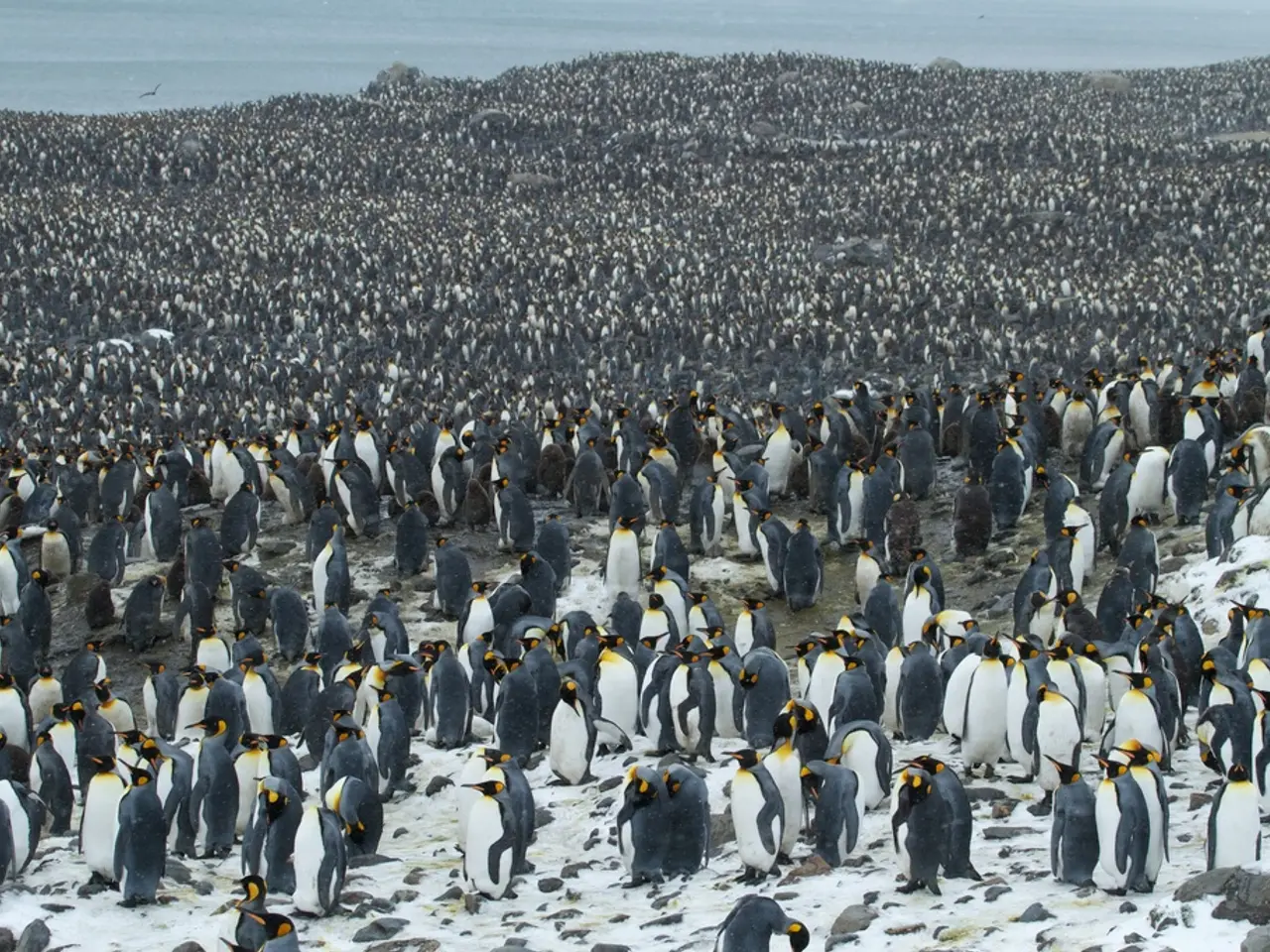Arctic spotlight: Germany increases military footprint in Greenland
In a significant move towards bolstering Atlantic security, Germany, Denmark, and Greenland have intensified their collaboration, with a focus on securing the High North and North Atlantic maritime spaces. This trilateral partnership, which also includes Canada and Norway, aims to enhance defense capabilities in the increasingly contested Arctic and North Atlantic regions.
The German State Secretary at the Federal Ministry of Defense, Nils Schmid, recently visited the Greenlandic capital, Nuuk, where he met with Greenlandic Foreign Minister Vivian Motzfeldt and Danish Defense Minister Troels Lund Poulsen. The main topic of discussion was expected to be collaboration on Atlantic security.
The German supply ship "Berlin" has already arrived in Nuuk as part of this closer cooperation. Captain Schlüter stated that the "Berlin's" presence in Nuuk serves to show support for partners and to display the German flag at the Arctic Circle. This visit marks the first time Germany will participate in the Canadian Arctic exercise Nanook.
Greenland, a semi-autonomous Danish territory, is strategically vital for control and surveillance in the North Atlantic and the Arctic. Its location acts as a gateway for military and intelligence operations in these regions. The melting of the Greenland ice sheet, driven by climate change, is making resource extraction increasingly economically viable, with Greenland exceptionally rich in natural resources such as oil, gas, uranium, gold, diamonds, and rare earths.
The strategic location of Greenland also makes it significant, as the shortest route from Europe to the U.S. goes over Greenland. This factor, combined with the potential for new shipping routes between the U.S., Europe, and Asia due to the melting of ice masses in the Arctic Ocean, further underscores Greenland’s geopolitical importance.
The Pituffik Space Base, a military airbase in Greenland, is strategically irreplaceable for the U.S. military, serving as the northernmost base of the U.S. military and playing a crucial role in the American early warning system for missiles.
The current status of German-Danish-Greenlandic collaboration on Atlantic security is active and strengthening, with Germany expanding its military presence in Greenland as part of a broader security partnership. This cooperation includes deployment of German naval assets such as submarines, frigates, maritime patrol aircraft, and the German replenishment vessel FGS Berlin.
This trilateral and wider multilateral cooperation underscores allied solidarity and shared responsibility in maintaining regional security. Danish Defence Minister Troels Lund Poulsen highlighted this as continued allied solidarity, further reinforced by France’s diplomatic gestures in support of Greenland and Denmark after U.S. overt territorial claims in the past.
However, Greenland’s political status adds a layer of complexity to this strategic alliance. As a semi-autonomous Danish territory, Greenland’s position is politically sensitive, with Denmark and Greenland firm in rejecting external attempts to influence or undermine their relations. This dynamic underscores the need for coordinated security cooperation to ensure mutual benefits and respect for Greenland’s autonomy.
In summary, the German-Danish-Greenlandic collaboration on Atlantic security is a strategic alliance strengthening northern Atlantic defense capabilities, with Greenland serving as a crucial geopolitical lynchpin for NATO and European security interests amid increasing great-power competition in the Arctic and North Atlantic.
Read also:
- United States tariffs pose a threat to India, necessitating the recruitment of adept negotiators or strategists, similar to those who had influenced Trump's decisions.
- Weekly happenings in the German Federal Parliament (Bundestag)
- Southwest region's most popular posts, accompanied by an inquiry:
- Discussion between Putin and Trump in Alaska could potentially overshadow Ukraine's concerns




